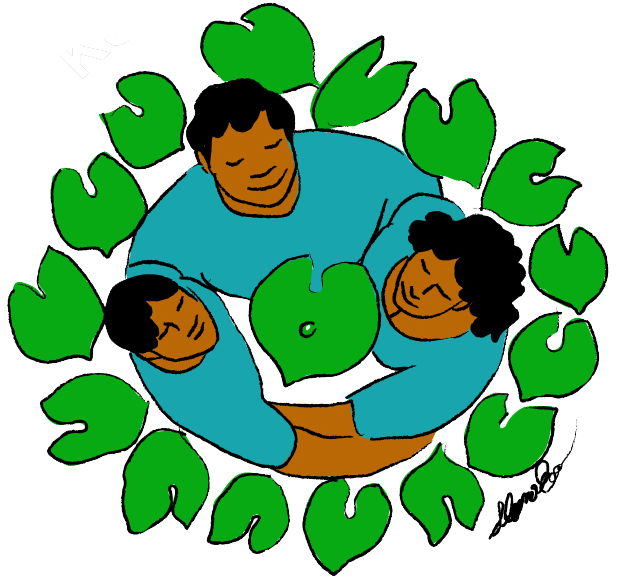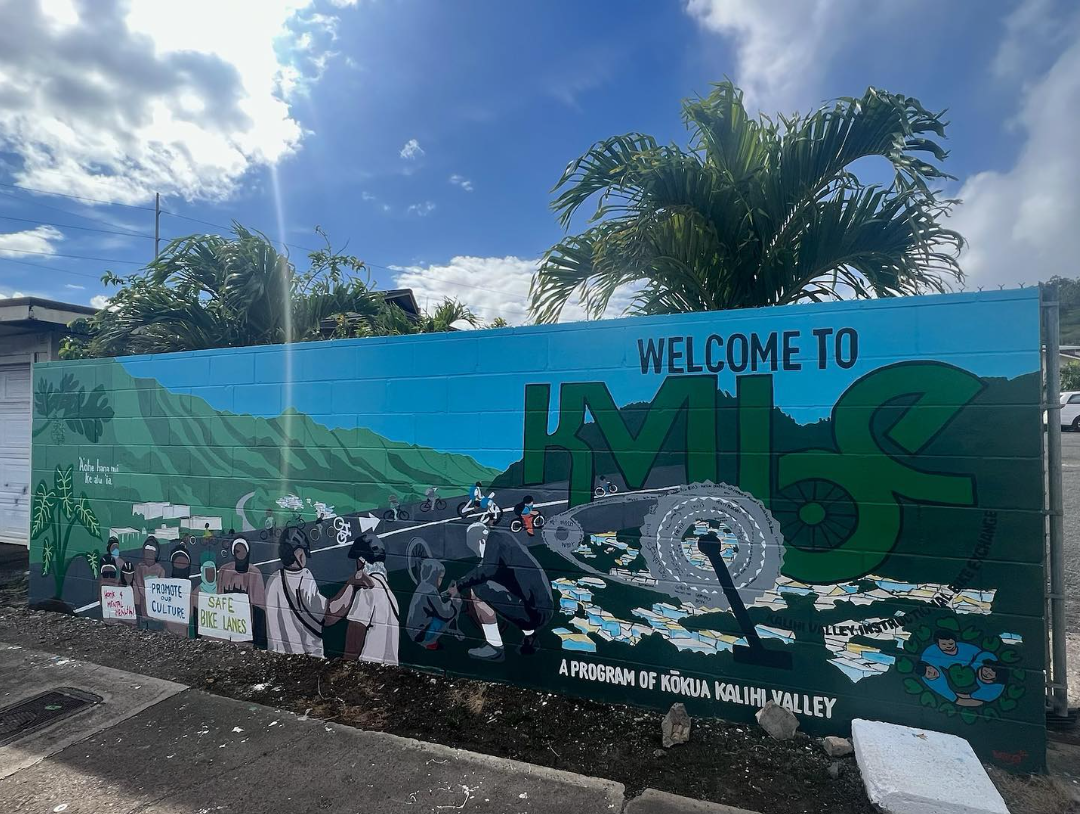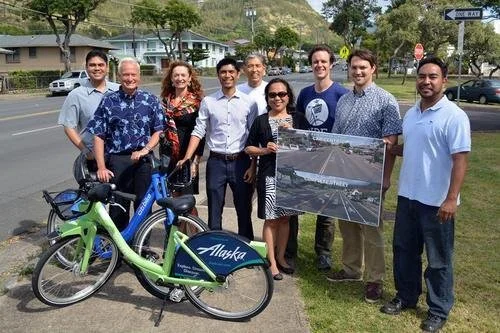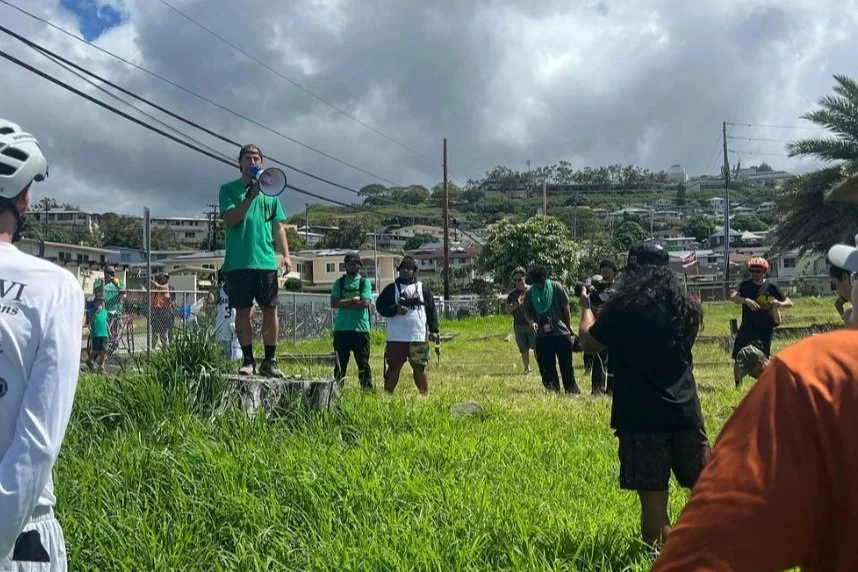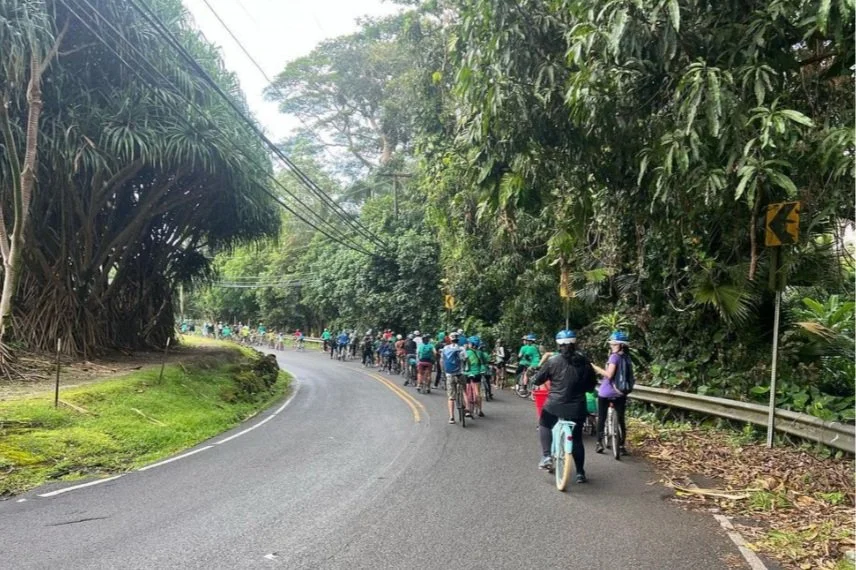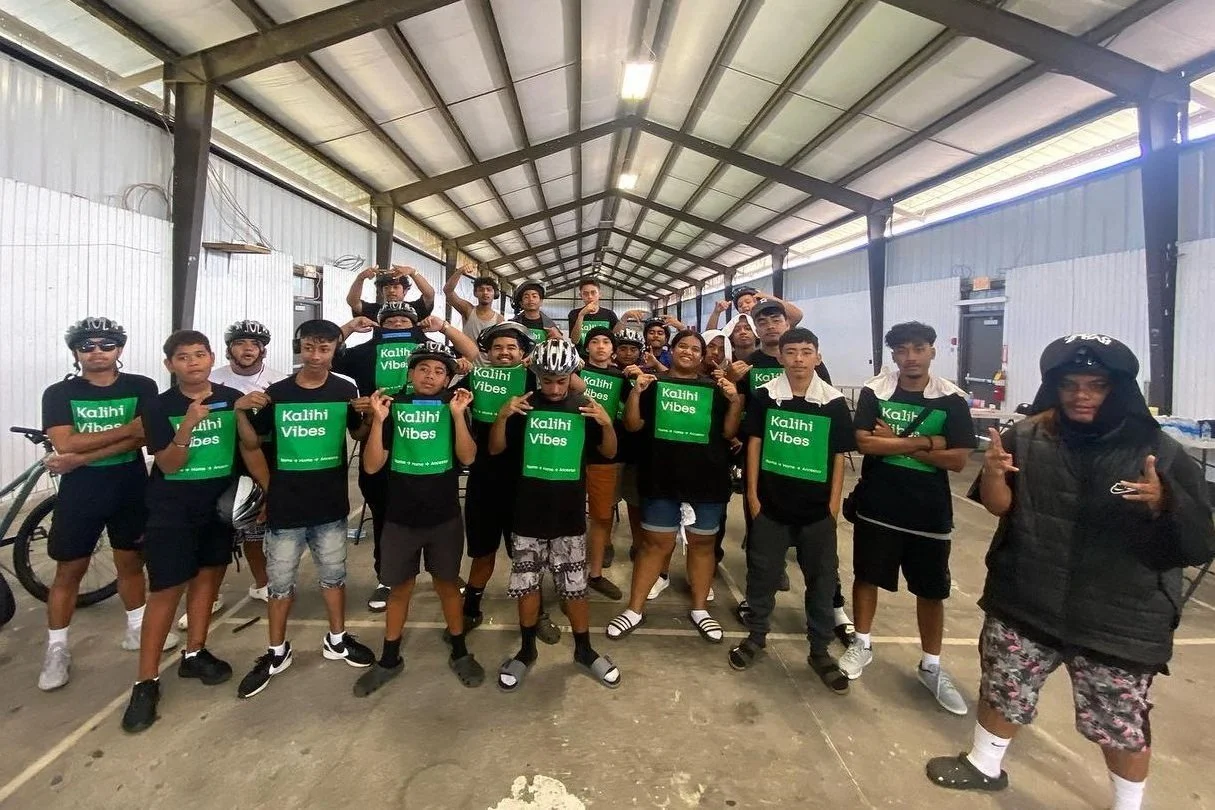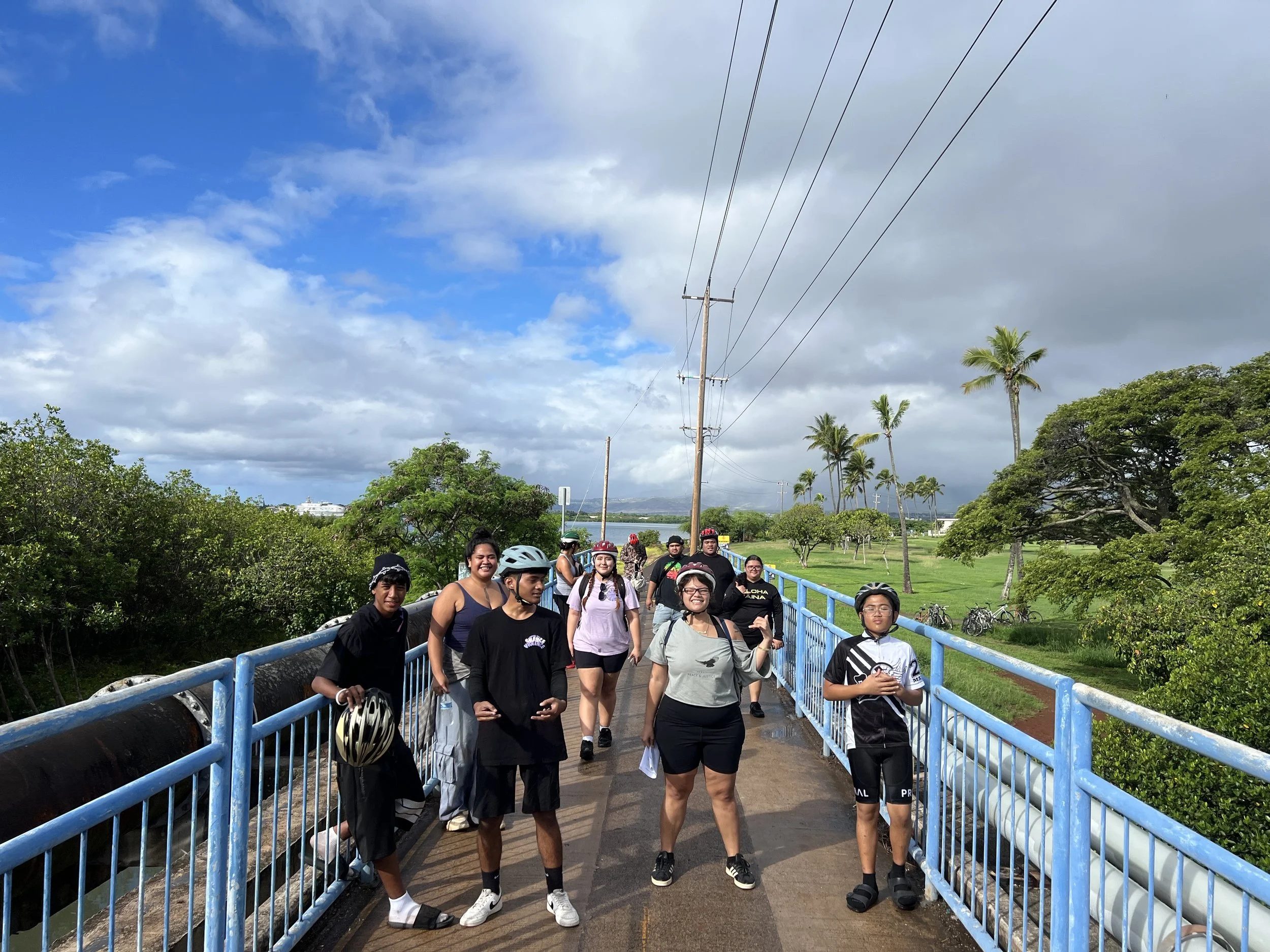Celebrating 20 Years of KVIBE
A mural outside of the KVIBE warehouse created during the 2023 Ahupua’a Ride. Photo courtesy of KVIBE.
On February 20, 2005, KKV’s Kalihi Valley Instructional Bike Exchange (KVIBE) opened its doors for the first time. What began as a program to promote health and fitness through biking, has grown over the past 20 years to meet the needs of the Kalihi community.
One of KVIBE’s first big changes was focusing on Kalihi’s youth and mentorship. While encouraging healthy lifestyles was always a goal for KKV, there weren’t many programs for young people at the time. At KVIBE, youth learn how to repair bikes, but also gain lessons in respect and responsibility, both in the shop and out in the community. “All the kids come from different backgrounds,” said KVIBE Coordinator Savelio “Nuki” Makasini, who has been with the program for nearly two years. “I heard in the early days, some of the kids were part of rival gangs, but they knew KVIBE was a place to put all that aside.”
KVIBE youth, KKV staff and other organizations celebrate the approval to repave and restripe Kamehameha IV Road.
Photos courtesy of the Honolulu Neighborhood Commission Office, January 2015.
Advocacy has always been a key part of KVIBE’s mission. From the start, KVIBE and its youth have led efforts to create change in Kalihi, especially around street safety on Kamehameha IV Road. In 2015, KVIBE partnered with community organizations to push for safer road conditions, citing the 2012 Complete Streets ordinance, which requires roads to accommodate pedestrians, bicyclists, and drivers. All their hard work paid off. By April 2016, the City and County of Honolulu completed a $3.19 million project to repave and restripe the road, adding a dedicated bike lane.
Scenes from past Kalihi Ahupua’a Rides.
Photos courtesy of KVIBE.
KVIBE is perhaps best known for its annual Kalihi Ahupuaa Ride, which started in 2017. The eight-mile ride, with story stops along the way, teaches KVIBE youth and riders from across Oahu about Kalihi’s history. The ride reflects KVIBE’s focus on helping youth connect with their cultural identity. “We’re seeing a lot of young kids come out nowadays,” said Nuki. “It’s important to us to get them involved in cultural practices. We want them to grow up knowing who they are and where they came from.” KVIBE also hosts community dinners throughout the year, bringing families together to share cultural practices and build connections.
Looking ahead, KVIBE has many exciting plans in store. Advocacy remains a top priority. Recently, KVIBE interns presented their research on street safety at neighborhood board meetings, and they hope to expand on those ideas. KVIBE’s reach is growing, too. “We’re really getting more known around Hawaii,” said Nuki. “We get so many calls now to do outreach or bike clinics.” Through these efforts, KVIBE has traveled off-island to host bike workshops and connect with other youth. For many of the interns, these trips are life-changing. “[The boys] are going to places they’ve never been,” Nuki shared. “Some have never even left Kalihi before this.”
KVIBE interns held a bike workshop at the One Stop Center for Micronesian Youth on the Big Island.
Photos courtesy of KVIBE, December 2023.
KVIBE is also looking forward to partnering with other organizations for community bike rides. In 2023, Hawaii Peace and Justice invited KVIBE to collaborate on a ride through Puuloa. Inspired by the Kalihi Ahupuaa Ride, they added story stops and traditional place names to their 2024 event. “We were honored that they modeled it after our ride,” said Nuki.
KVIBE collaborated with Hawaii Peace and Justice on a community bike ride through Pu’uloa. Photo courtesy of KVIBE, November 2024.
While KVIBE focuses on youth, it’s open to anyone in need. “It means a lot that people know we’re here,” said Nuki. “One time, a man who had just gotten out of jail came straight to us for a bike. He said he knew about us from years ago. That shows the consistency of our program.” Many community members who use the warehouse also give back by donating drinks and snacks for the kids. “We’re still all about community exchange,” Nuki added. “People know it’s not just about taking.”
For 20 years, KVIBE has transformed not only bicycles but also lives. The program has become a vital part of Kalihi, creating a space where youth can grow, learn, and find belonging. At its heart, KVIBE is about building community, one bike—and one person—at a time.
